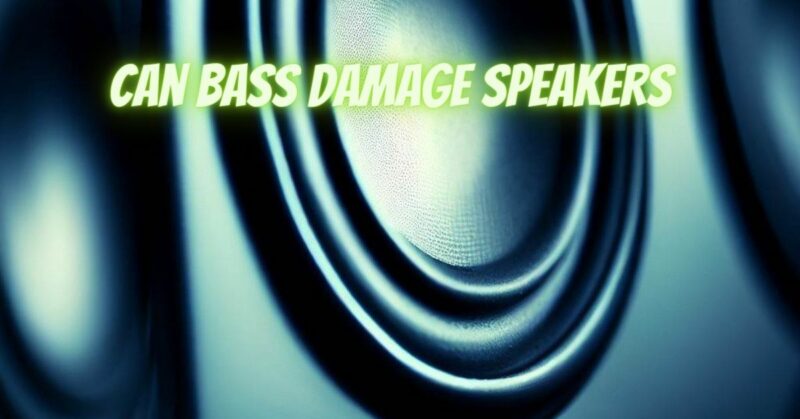Bass, with its deep and resonant qualities, adds a rich foundation to music and audio experiences. However, some concerns have been raised regarding whether the intense vibrations and energy produced by bass frequencies can damage speaker components. In this article, we will delve into the effects of bass on speakers and examine how quality, power handling, and user behavior play essential roles in preserving the longevity of speaker systems.
- Understanding Bass and Its Impact
Bass refers to the low-frequency range of audio, typically spanning from 20Hz to 250Hz. Producing powerful bass requires the speaker’s drivers to move large amounts of air rapidly. This movement generates substantial vibrations within the speaker enclosure, and if not managed properly, these vibrations can potentially harm the speaker components.
- Speaker Quality and Durability
The build quality and design of the speakers significantly influence their ability to handle bass frequencies without sustaining damage. High-quality speakers, engineered with robust materials and precise construction, are better equipped to withstand the stresses caused by intense bass reproduction. Such speakers are designed with durable drivers, sturdy cabinets, and reinforced cones, enabling them to handle low frequencies effectively.
- Power Handling Capacity
A speaker’s power handling capacity, measured in watts, indicates how much power it can safely handle without being damaged. Bass-heavy music or audio tracks can be demanding on speakers, requiring them to handle higher wattage levels to reproduce low frequencies accurately. Speakers with a higher power handling capacity are better suited for handling bass without the risk of damage, as they can handle the increased energy levels associated with low frequencies.
- Distortion and Overloading
One of the primary concerns with bass-heavy audio is distortion. When the speaker is driven beyond its capacity, it can lead to distortion, where the audio signal becomes muddled and unpleasant. Distorted signals can damage speaker components and cause audio quality to deteriorate. To avoid this, users should ensure that the amplifier’s power output matches the speaker’s power handling capacity.
- Low-Frequency Filters and Crossovers
In professional audio setups or home theater systems, the use of low-frequency filters and crossovers can help manage bass distribution between speakers. These components ensure that each speaker receives the appropriate frequency range, preventing smaller speakers from attempting to reproduce extremely low frequencies that could lead to damage.
- Responsible Listening Practices
Listening habits also play a significant role in preserving speaker longevity. Prolonged exposure to extremely high bass levels can put stress on the speaker components. Using a well-balanced equalizer and controlling the volume within safe limits can help prevent damage.
In conclusion, bass itself does not inherently damage speakers. High-quality speakers designed with durability and precision can handle the demands of bass-heavy music without issues. However, users must consider factors such as speaker quality, power handling capacity, distortion management, and responsible listening practices.
To enjoy deep, resonant bass without damaging your speakers, invest in reputable speaker systems with ample power handling capacity, use appropriate low-frequency filters, and avoid overdriving the speakers. By following these guidelines, you can appreciate the immersive bass experience while preserving the integrity and performance of your speaker system for years to come.


